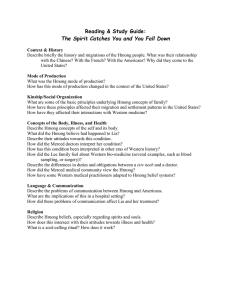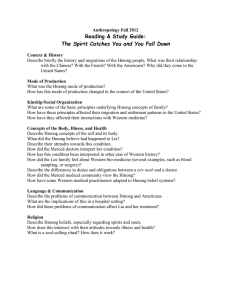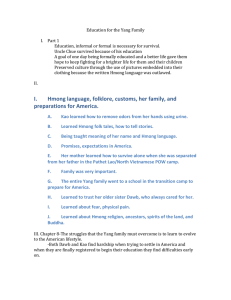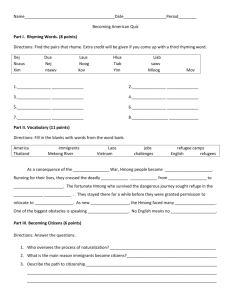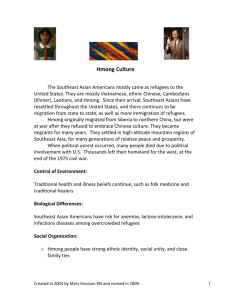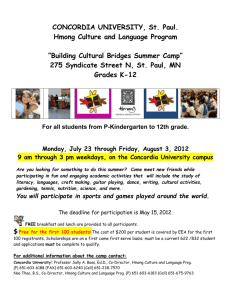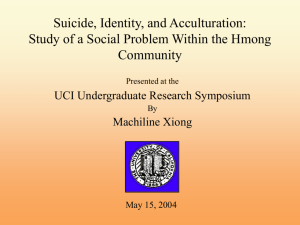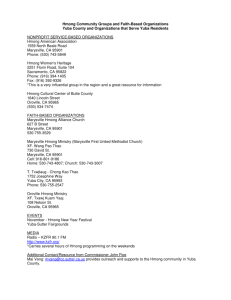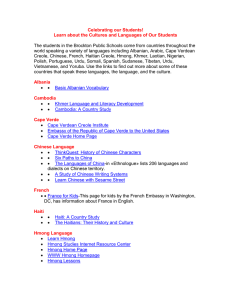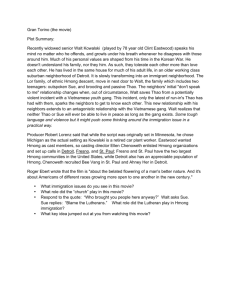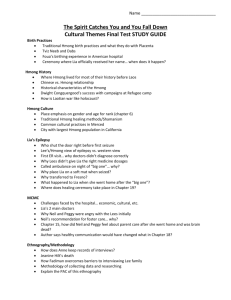Reflection Paper 2: Hmong Cultural Immersion
advertisement
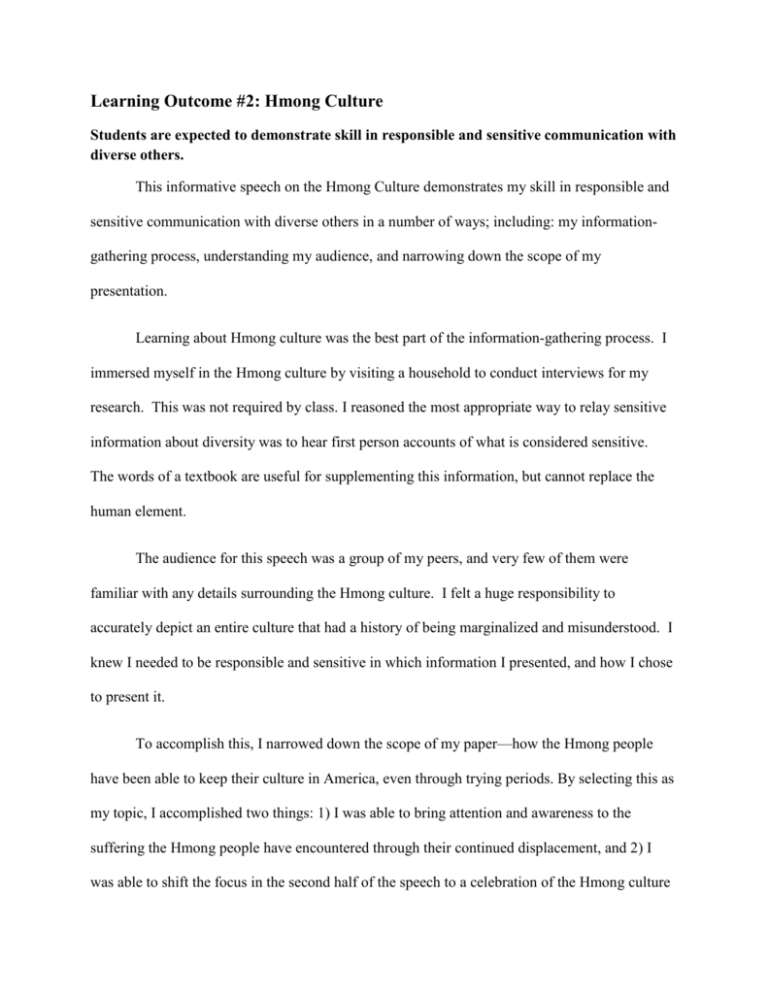
Learning Outcome #2: Hmong Culture Students are expected to demonstrate skill in responsible and sensitive communication with diverse others. This informative speech on the Hmong Culture demonstrates my skill in responsible and sensitive communication with diverse others in a number of ways; including: my informationgathering process, understanding my audience, and narrowing down the scope of my presentation. Learning about Hmong culture was the best part of the information-gathering process. I immersed myself in the Hmong culture by visiting a household to conduct interviews for my research. This was not required by class. I reasoned the most appropriate way to relay sensitive information about diversity was to hear first person accounts of what is considered sensitive. The words of a textbook are useful for supplementing this information, but cannot replace the human element. The audience for this speech was a group of my peers, and very few of them were familiar with any details surrounding the Hmong culture. I felt a huge responsibility to accurately depict an entire culture that had a history of being marginalized and misunderstood. I knew I needed to be responsible and sensitive in which information I presented, and how I chose to present it. To accomplish this, I narrowed down the scope of my paper—how the Hmong people have been able to keep their culture in America, even through trying periods. By selecting this as my topic, I accomplished two things: 1) I was able to bring attention and awareness to the suffering the Hmong people have encountered through their continued displacement, and 2) I was able to shift the focus in the second half of the speech to a celebration of the Hmong culture prevailing in spite of these circumstances. I thought this was the most responsible way to communicate sensitive information. I was mindful to acknowledge the trials and tribulations of the past, but did not want to dwell on it. Instead, I wanted to celebrate a diverse culture. Overall, I am proud of this particular artifact. Even after I had presented the speech, I have continued to learn about the Hmong people. I recall seeing a special on Hmong cultural traditions while flipping through channels, several months after the presentation. I remember the program because I vividly recall being shocked at how much “new” information the show contained. There is a temptation after learning and researching a project to consider yourself a quasi-expert on it, even if the only reason is because everyone else’s knowledge base on the subject is non-existent. I felt embarrassed once I realized this is what I was doing. However, it was beneficial in that it fueled my thirst for ongoing education.
